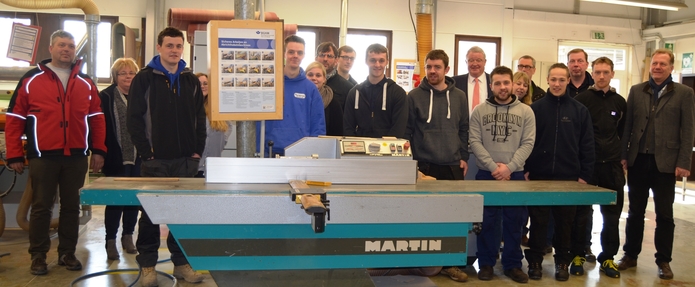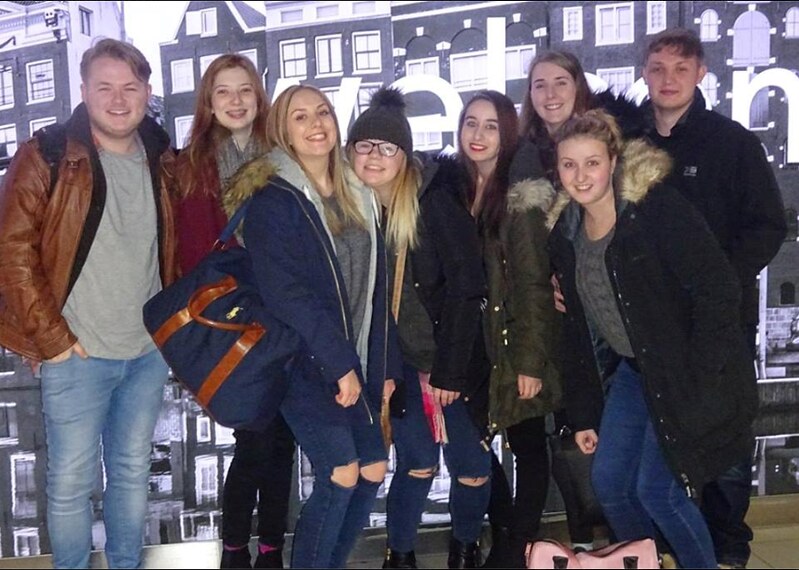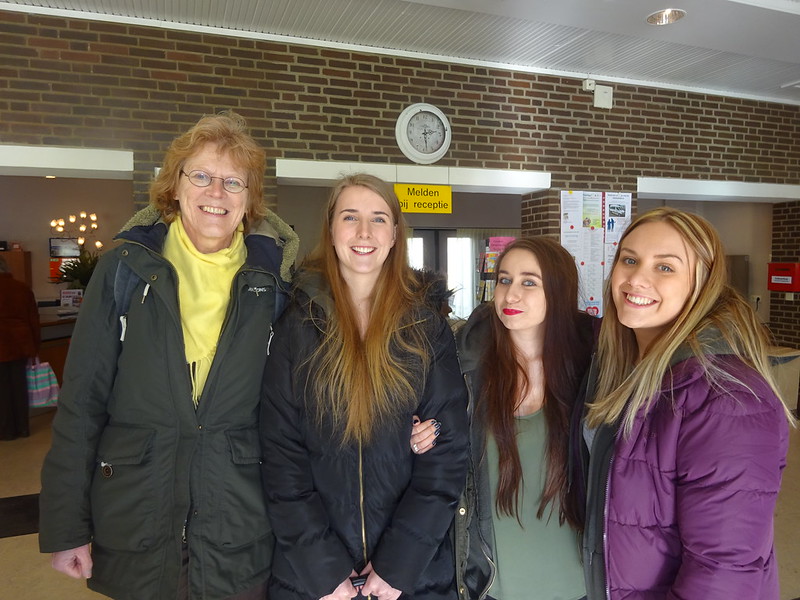
Creating a learning environment which contributes to social inclusion, economic regeneration and work force development
'Opportunities and Challenges' is a Key Action 1 vocational education and training (VET) mobility project by Lincoln College that aims to lead and work in partnership with all communities to create a learning environment and infrastructure which contributes to social inclusion, community cohesion, economic regeneration and work force development. The project takes students and apprentices to Germany and the Netherlands with the aim for them to become familiar with working practices in the host colleges and respective industries.
Lincoln College has been working with their European partners for over 10 years, which has led to excellent working relationships within the teams of the three institutions. They are also a very international college with links in China and Saudi Arabia. Their far-reaching ties have not gone unnoticed; in 2011 the college was judged as 'outstanding' by OFSTED and their mobility project in Health and Social Care was mentioned as one of the things they do well. Their mobility projects were also highlighted again in the 2016 OFSTED report. Lincoln College also has strong links with industry and in a recent Skills Funding Agency Employers Satisfaction Survey from July 2016, 90% of all employers that work with the college rated the quality of training of the apprentices as excellent or good and that the flexibility of Lincoln College provision meets their needs.
Participants
The 24 students and apprentices that took part in the project were selected from two of the college's vocational areas; Care (BTEC Level 3 Extended Diploma Health and Social Care and CACHE Level 3 Diploma Childcare and Education) and Construction and Engineering (Mechanical and Automotive Engineering, Plumbing, Joinery and Bricklaying, Level 3 Advanced Apprentices). Four members of staff were also drawn from these two areas to accompany the learners and as part of their CPD. The VET staff aimed to identify areas of innovative practice and to develop learning materials to integrate into the work of the college. Pictured below are Health and Social Care students with Els Guerts, liaison tutor at Alfa College in The Netherlands.
Activities
The activities learners took part in included:
- the personal care of vulnerable adults;
- working as a team member with adults with dementia;
- providing physical and social care for very small children;
- supporting the development of intellectual and social skills for toddlers and young children;
- working in the identified vocational location with employers in garages, joinery companies, with construction companies etc.;
- VET staff working with their host partners for five days in college and in industry.
Benefits for participants
The college believes that soft skills account for at least 50% of what the participants take from participating in an Erasmus+ mobility. One motor vehicle apprentice noted when attending college with his German partner apprentice, by the third time he was able to translate the worksheets and was able to join in with staff and student discussion. On returning, participant diaries reveal that almost all participants say they would like more language training, as going on mobility showed them the importance of a foreign language. The longer term impacts of participating in mobility projects are shown in the international friendships that were maintained and the progression of their learning and careers.
All the students who are progressing on to Higher Education talk about their Erasmus+ experience in their personal statements, and are able to cite this when attending interviews. All the apprentices who have taken part in these mobilities go on to permanent employment. Many go on to become team leaders and one participant in particular continues to work for the same company which allowed him to go on the placement. Three years later, this apprentice has progressed from level 3 to studying towards a level 4 management qualification. During a conference at one of the partner colleges in Germany, the principle of the German college noted that by participating in Erasmus+ programmes, young people are given an opportunity to see and appreciate other cultures as a way of encouraging social inclusion.
The one thing this opportunity gives (participants) is that it usually confirms on completion of their apprenticeship they have a permanent job. - Ann Stanley, European Officer
Benefits for the college
Lincoln College noted one of the major benefits for the organisation was recruitment. In the local area, every school has a sixth form, so there is high competition for potential students. The college has used their Erasmus+ mobility opportunities extensively in the recruitment of future students. By letting students know about the international opportunities available at the college this has encouraged more students to apply. Pictured below are Health and Social Care students on arrival in Schiphol Airport Amsterdam on their way to Groningen.
 Getting employers on board
Getting employers on board
One difficulty the college faced was getting potential employers on board. As many of it's industry links are with SMEs with small teams, losing a member for three weeks can be a commitment that companies are not always willing to take. However the college found the best way to get employers on board was through honesty; being honest with potential participants, with employers, with parents and talking about the realities of the mobility has helped to get all parties interested in the opportunity.
Ann Stanley, Lincoln College's European Officer, noted that it takes "a lot of talking" and "saying these are the benefits". Through honesty, communication and clear presentation of benefits, the college has succeeded in getting both parent and employer buy in. This is reflected in the results of the 2016 Employers Satisfaction Survey highlighting the high quality of apprentice training at Lincoln College and in their 2016 OFSTED report which stated that 'through strong partnership work, managers have developed a curriculum that meets the needs of employers well'. This perfectly exemplifies how having strong international partners and mobility schemes has helped the college develop a curriculum that works for employers as well as learners.
Recognition for apprentices
Two apprentices from the college were awarded the Barry and Peggy High Scholarship Foundation apprenticeship award by the Construction Industry Training Board (CITB) for outstanding performance in the East Midlands and East of England. Both apprentices received a prize worth £1500 in cash and tools. The member of staff that nominated the apprentices for the award used evidence from their time in Germany on the Erasmus+ placement to support their nominations. A young apprentice, Lloyd Dunwell, was also featured in the Lincolnshire Echo and the Read Motorgroup's news for his successful work experience placement in Germany.
Have you been inspired by the impact mobility projects can have on apprentices and colleges? Find out more about how to apply for VET funding

